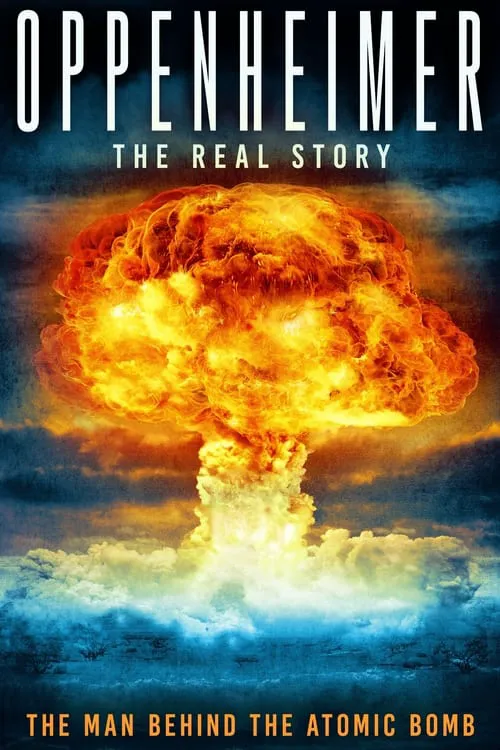Oppenheimer: The Real Story

Plot
J. Robert Oppenheimer's life was a tapestry woven from the strands of genius, tragedy, and moral complexity. Born in 1904 to a Jewish family of German descent, Oppenheimer grew up in a cultured and intellectual environment that nurtured his innate curiosity and love for learning. This inclination towards physics would eventually shape his destiny, making him a pivotal figure in the development of the atomic bomb during World War II. As a child, Oppenheimer was exposed to the world of mathematics and science through the numerous books and journals his father, a textile merchant, brought home. This early exposure kindled a spark within him, which only intensified as he delved deeper into the realm of physics during his academic years. He spent time studying at Cambridge University and the University of Göttingen, where he was introduced to the works of Albert Einstein and Erwin Schrödinger. These encounters not only deepened his understanding of theoretical physics but also instilled in him a sense of awe for the human capacity to comprehend the complexities of the universe. Oppenheimer's academic prowess led to a position as a professor of physics at the University of California, Berkeley, where he began to make a name for himself within the scientific community. His research focused on quantum mechanics, and he became known for his incisive thinking and innovative approaches to theoretical problems. Nevertheless, his involvement in nuclear physics marked a turning point in his life, drawing him into the midst of a highly charged and often contentious world. In 1942, Oppenheimer was approached by General Leslie Groves to lead the secret Manhattan Project, which aimed to develop an atomic bomb before the Nazis could do so. Oppenheimer's knowledge of nuclear physics made him an ideal choice for the job, and he accepted the challenge without hesitation. Over the next two years, he worked tirelessly alongside a team of brilliant scientists, engineers, and technicians to bring the project to fruition. The culmination of their efforts came on July 16, 1945, when Oppenheimer witnessed the first atomic bomb detonation at the Trinity Site in New Mexico. As the mushroom cloud rose into the sky, Oppenheimer recalled the words of the Bhagavad Gita: "If the radiance of a thousand suns were to burst forth at once in the sky, that would be like the splendor of the Mighty One. I am become Death, destroyer of worlds." This quote, which Oppenheimer would later say he chose to describe the bombing of Hiroshima, speaks to the profound sense of awe and trepidation he felt as he beheld the devastating power of the atomic bomb. The aftermath of the Trinity test was a mixed bag of emotions for Oppenheimer. He felt a deep sense of personal pride in having contributed to the development of a powerful new technology, but he was also haunted by the ethical implications of creating a device capable of unleashing untold destruction upon the world. As the news of the bombings of Hiroshima and Nagasaki spread, Oppenheimer became increasingly vocal about the need for nuclear disarmament and stricter controls on the use of atomic energy. In the years that followed, Oppenheimer became a vocal advocate for nuclear non-proliferation, working tirelessly to raise awareness about the dangers of nuclear war and the importance of responsible stewardship over atomic technology. His efforts were marked by both success and failure, as he navigated the complex web of Cold War politics and scientific debate. In 1954, the Atomic Energy Commission (AEC) revoked his security clearance, citing concerns over his supposed communist sympathies and alleged loyalty to the Soviet Union. This decision was a personal blow to Oppenheimer, who felt betrayed by the scientific community he once considered his own. Despite this setback, he continued to speak out against nuclear proliferation, working closely with other notable figures like Albert Einstein and Linus Pauling. Throughout his life, Oppenheimer remained deeply committed to unraveling the mysteries of the universe, but his experiences ultimately shaped him into a passionate advocate for nuclear responsibility. As the years went by, Oppenheimer's health began to decline, and he passed away in 1967. His funeral was attended by a small group of close friends and family, but his legacy as a physicist and nuclear pioneer has endured long after his passing. This film, a testament to his life and contributions, highlights the complexities of a man who embodied both the intellectual curiosity and the sense of responsibility that defined the 20th century.
Reviews
Recommendations




